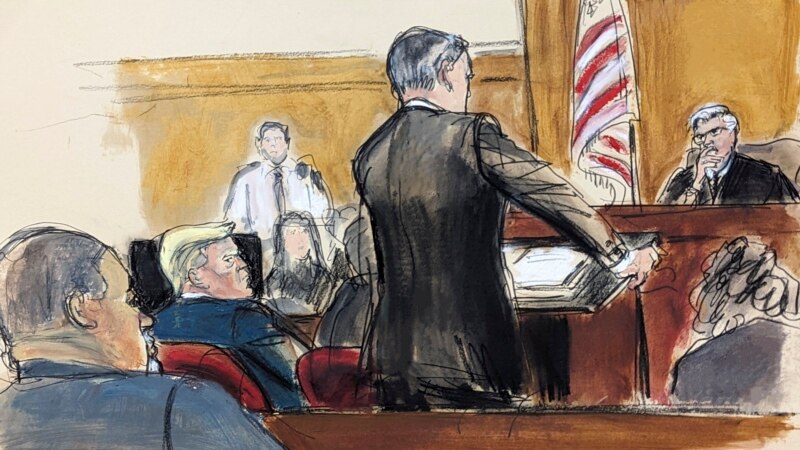
Prosecutors who won Donald Trump’s conviction for paying hush money to a porn actress on Tuesday objected to their stated hope that case will be dismissed now that he is president-elect, and asked a judge to set a timetable for litigating the matter.
Trump, 78, hopes to enter a second term unburdened by any of the four criminal cases he has faced that some believed would derail his bid to return to the White House.
Trump was convicted in May of falsifying business records to cover up a $130,000 payment his former lawyer Michael Cohen made to porn actress Stormy Daniels for her silence before the 2016 election about a sexual encounter she says she had with the billionaire, who he denies it.
It marked the first time that a United States president, sitting or out of office, has been convicted or charged with a criminal offense.
Trump was scheduled to be sentenced on November 26, but Judge Juan Merchán last week paused all proceedings in the case at the request of Manhattan District Attorney Alvin Bragg’s office.
Prosecutors had asked for more time to consider next steps in the case, citing the need to balance “competing interests” between moving the criminal case forward and protecting the president’s office.
Prosecutors suggested they be given until December 9 to oppose Trump’s request.
They also said consideration should be given to postponing all proceedings until after Trump ends his four-year term that begins Jan. 20, but stopped short of explicitly supporting that option.
A “total” victory?
Trump campaign spokesman Steven Cheung called Bragg’s position “a complete and definitive victory” for the Republican in a statement.
Trump has pleaded not guilty in the case, which he has long portrayed as a politically motivated attempt by Bragg, a Democrat, to interfere in his campaign.
His defense lawyers urged Merchán to dismiss the case, arguing that the fact that it loomed over him while he was president would cause “unconstitutional impediments” to his ability to govern.
Trump’s lawyers also argued that his conviction should be overturned and the charges dismissed because of the U.S. Supreme Court’s ruling in July that presidents cannot be prosecuted for their official acts, and that the evidence for holding office They cannot be used in judgments about personal behavior.
Bragg’s office said his case concerned purely personal conduct.
Falsifying business documents is punishable by up to four years in prison. Before he was elected, experts said it was unlikely – but not impossible – that Trump would spend time behind bars, and saw punishments such as a fine or probation as more likely.
Trump’s victory over Democratic Vice President Kamala Harris on Nov. 5 made the prospect of imposing a prison sentence or parole even more tense and unworkable, given that a sentence could limit his ability to carry out the tasks of the presidency.
Connect with the Voice of America! Subscribe to our channelsYouTube, WhatsApp and to newsletter. Turn on notifications and follow us on Facebook, x and instagram.














Add Comment